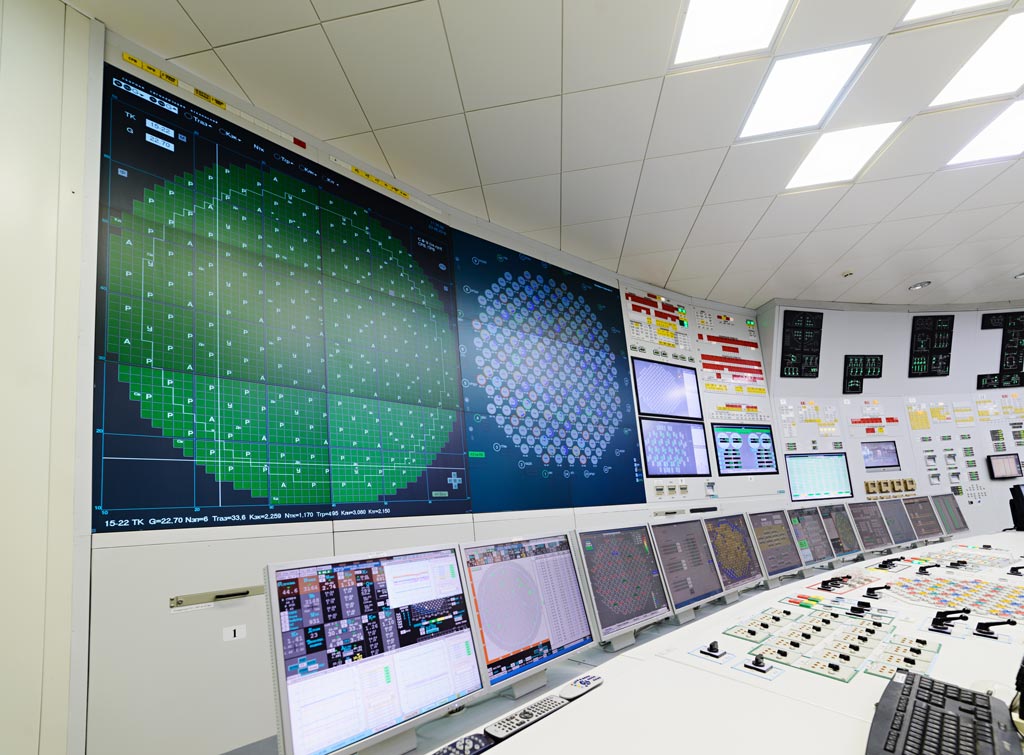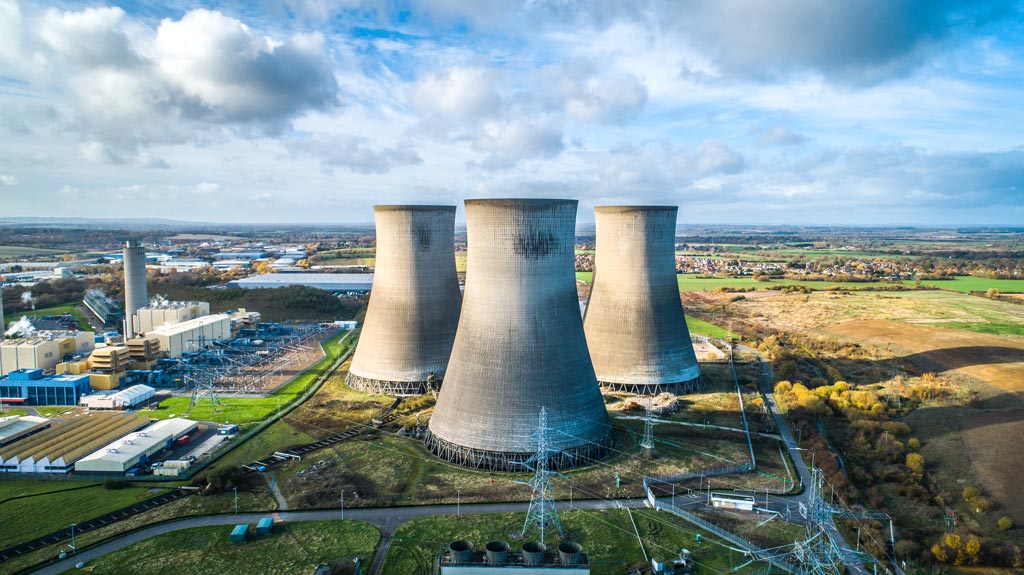
In the highly regulated world of nuclear energy, navigating the complex maze of compliance regulations is a formidable challenge for facilities dealing with nuclear material and technology.
These regulations, set forth by authoritative bodies like the Nuclear Regulatory Commission (NRC) and the National Nuclear Security Administration, are designed to ensure nuclear facility safety, safeguard against the misuse of nuclear technology, and protect the environment from radioactive material.
With the stakes so high, the question becomes: how can nuclear facilities streamline compliance processes to meet these rigorous standards efficiently? The answer lies in leveraging the power of Enterprise Resource Planning (ERP) solutions.
This blog explores the dynamic role of ERP systems in transforming compliance management within the nuclear industry, offering insights into how these technologies promote safety, efficiency, and adherence to national and international regulations.
Understanding Nuclear Compliance
Overview of Nuclear Compliance Regulations
The framework of nuclear compliance regulations encompasses a broad spectrum of requirements, governing everything from the safety of nuclear reactors and power plants to the secure handling of nuclear material.
These regulations are informed by research and development within the nuclear industry. They evolve in response to advances in nuclear technology and changes in the geopolitical landscape.
At the heart of these regulations is a dual aim: to harness the potential of nuclear energy for the nation’s benefit while ensuring common defense and security against the risks associated with nuclear materials and weapons. Important points to consider include:
- Key Regulatory Bodies: The NRC and the Department of Energy’s National Nuclear Security Administration are central to the US’s regulatory landscape, setting standards that nuclear facilities must meet. Internationally, compliance also involves adhering to agreements set by member states, ensuring global nuclear safety and security.
- Challenges in Achieving Compliance: Nuclear facilities face numerous challenges in maintaining compliance, from managing the intricacies of nuclear reactor safety to navigating export control regulations for nuclear technology. Each aspect requires meticulous attention to detail and an unwavering commitment to safety standards.
The Role of ERP in Enhancing Nuclear Facility Compliance
ERP solutions emerge as pivotal tools in the quest for nuclear facility compliance, offering a comprehensive platform for managing the complex demands of the nuclear industry. Here’s how ERP systems are making a difference:
- Centralizing Compliance Management: By integrating various facets of compliance into a single system, ERP solutions provide a unified view of a facility’s adherence to regulations. This centralization simplifies the management of nuclear material, streamlines reactor licensing processes, and ensures that all aspects of nuclear facility safety are monitored and maintained to the highest standards.
- Streamlining Documentation and Reporting: One of the critical components of regulatory compliance is the accurate and timely documentation and reporting of activities related to nuclear materials and safety protocols. ERP systems automate these processes, reducing the risk of human error and ensuring that nuclear facilities can easily demonstrate compliance with NRC issues and other regulatory requirements. This automation not only saves time but also significantly enhances the facility’s ability to respond to safety issues swiftly.
By harnessing the capabilities of ERP solutions, nuclear facilities can navigate the labyrinth of compliance regulations more efficiently, ensuring that they meet the stringent standards set forth by regulatory bodies. In doing so, these facilities uphold their commitment to nuclear safety, protect the environment, and contribute to the nation’s nuclear security and energy independence.
ERP Solutions and Nuclear Facility Safety
ERP solutions play a critical role in bolstering the safety standards of nuclear facilities and nuclear business compliance. Through the integration of advanced technology and data analytics, ERP systems offer a robust framework for enhancing operational safety by:
- Improving Safety Standards: Through implementing ERP solutions, nuclear facilities can adopt a more systematic approach to safety, ensuring compliance with the highest safety standards and protocols. These systems enable real-time monitoring and management of safety metrics, providing a clear picture of a facility’s safety performance.
- Supporting Risk-Informed Decision-Making: ERP systems support a risk-informed approach to safety management. By analyzing data from various operational areas, these systems help identify potential risks and vulnerabilities, allowing for preemptive action to mitigate safety issues before they escalate.
Integrating Nuclear Material and Technology Management

The management of nuclear material and the development of nuclear technology are at the heart of a facility’s operational efficiency and compliance. ERP solutions streamline these critical aspects by:
- Managing Nuclear Material: Tracking and managing the use, storage, and disposal of nuclear material becomes more streamlined with ERP systems. They ensure rigorous documentation and compliance with regulations regarding radioactive material, significantly reducing the risk of non-compliance.
- Supporting Research and Development: ERP systems facilitate the integration of research and development activities within the broader operational framework of nuclear facilities. By providing tools for project management and collaboration, ERP helps ensure that innovations in nuclear technology adhere to regulatory standards and contribute positively to nuclear safety and efficiency.
Navigating Export Controls and International Compliance
Export control regulations and international compliance standards present another layer of complexity for the nuclear industry. ERP solutions simplify the navigation of these regulations through:
- Export Control Compliance: ERP systems come equipped with functionalities that help manage the intricacies of export controls, ensuring that nuclear facilities comply with international regulations regarding the transfer of nuclear technology and materials.
- Meeting International Safety Standards: By centralizing compliance data and processes, ERP systems enable nuclear facilities to align with international safety standards and agreements. This alignment is crucial for facilities that operate within the global nuclear industry, ensuring they meet the expectations of member states and international regulatory bodies.
The CTND Advantage: Tailored ERP Solutions for the Nuclear Industry
CTND stands at the forefront of delivering ERP solutions specifically designed for the nuclear industry. Recognizing the unique challenges and regulatory demands of this sector, CTND’s ERP offerings are tailored to meet the needs of nuclear facilities, providing a strategic advantage in the following ways:
- Customized for Nuclear Compliance: CTND’s ERP solutions are built with the nuclear industry’s compliance needs in mind. From managing nuclear material to ensuring facility safety and navigating export controls, these systems are designed to simplify compliance and enhance operational efficiency.
- Facilitating Safety and Efficiency: By integrating safety management, material tracking, and compliance processes into a single platform, CTND’s ERP solutions not only promote nuclear facility safety but also drive operational efficiency.
- Adapting to Industry Evolutions: As the nuclear industry evolves, so do the challenges it faces. CTND’s ERP solutions are scalable and adaptable, capable of evolving with new nuclear technologies, regulatory changes, and the shifting landscape of international compliance.
The Bottom Line
Navigating the complexities of nuclear compliance and safety demands a comprehensive approach that only specialized ERP solutions can provide. CTND’s tailored ERP offerings equip nuclear facilities with the tools needed to meet regulatory requirements, enhance safety standards, and maintain operational efficiency in the face of evolving industry challenges.
With CTND’s ERP solutions, nuclear facilities can confidently address compliance and safety issues, ensuring they contribute positively to national nuclear security and the global push for clean energy.
